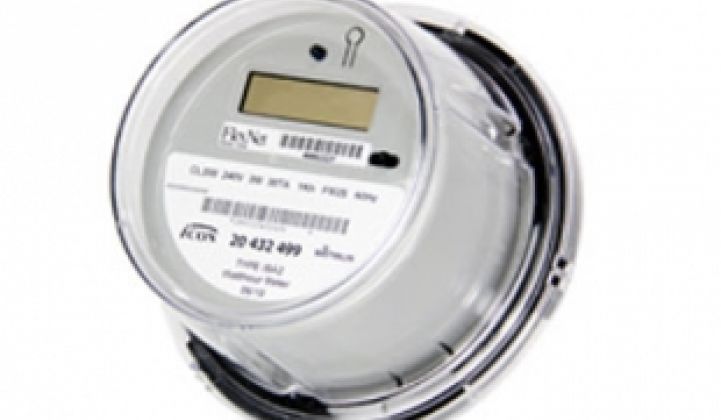PECO is restarting its smart meter deployment after halting it in August due to a small percentage of overheating issues, some of which resulted in fire.
The Pennsylvania utility will continue its rollout of smart meters, but without Sensus meters. PECO had installed about 186,000 Sensus meters as part of its AMI plan (29 of which overheated). It also had a deal with Landis+Gyr and Elster to provide meters as part of the full deployment.
Landis+Gyr meters have replaced about half of the Sensus meters in the field as part of an independent investigation into meter performance issues. PECO was careful not to speak out against Sensus but said, “In general, the firms found that Landis+Gyr performed better in the field,” according to Cathy Engel Menendez, manager of communications at PECO. She would not elaborate on what “performed better” meant in terms of the report. Sensus was unable to comment on the report because PECO has not shared it with the company.
“While they have decided to suspend use of our meters at this time, be assured that there are no safety issues with Sensus electric meters that support this decision,” Sensus said in a statement. “The results of investigations have confirmed the meters are not the problem and our patent-pending technology actually helps to mitigate issues that occur outside the meter.”
PECO said that the upgrades Sensus provided where the meter automatically shuts off if it approaches overheating “did make some improvements,” although Menendez again declined to elaborate.
Sensus is not out of the picture for PECO. The company will continue to be the communications network provider for metering and distribution automation. Also, since PECO is mandated to use a variety of meters for its smart meter deployment in each customer class, Sensus could throw its hat back into the ring when PECO evaluates additional meter technologies for the rest of the 1.6-million-meter project.
Elster has been chosen as one of the technologies for the commercial customers, although Menendez said there will be additional brands chosen in that group too.
Moving forward, PECO and other utilities in the Exelon (NYSE: EXC) family -- which includes Baltimore Gas & Electric and Commonwealth Edison -- will submit any meter for independent analysis.
When asked why the utility had not submitted meters to independent testing in the first place, Menendez said that they trusted the testing results provided by the vendors and consulted with other utilities about safety and performance issues, which is standard in the industry. Sensus has 10 million meters deployed in North America, of which it noted “2 million of the exact same model used in the PECO installation continue to operate safely and reliably in communities across the U.S.”
In the future, Exelon likely will not be the only one to call on independent experts. With public utility commissions demanding more from utilities in their smart grid business cases, ensuring that each technology has undergone rigorous independent testing could become the new norm.



